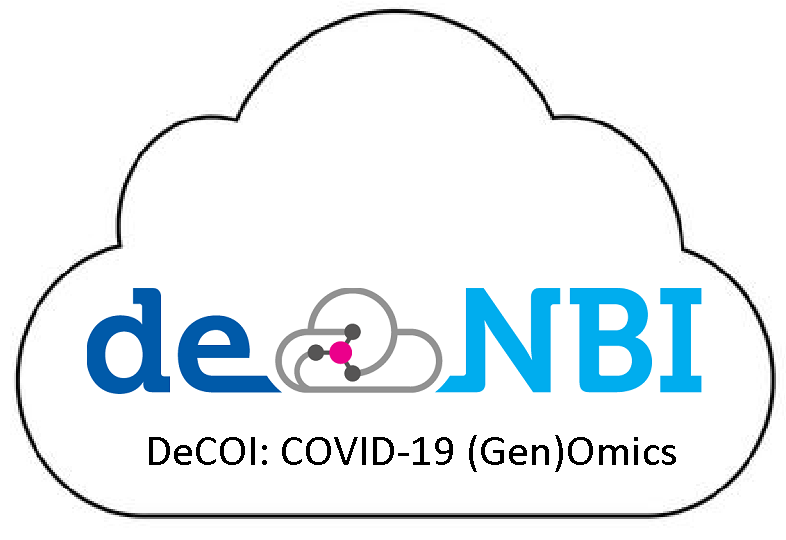O. Kohlbacher, Eberhard Karls Universität Tübingen, J. Korbel, EMBL Heidelberg, O. Stegle, DKFZ Heidelberg, I. Buchhalter, DKFZ Heidelberg (Joint initiative of de.NBI/GHGA)
Service centers: Center for Integrative Bioinformatics – CIBI and Heidelberg Center for Human Bioinformatics – HD-HuB
The coronavirus pandemic is affecting people in different ways. While many patients only show mild symptoms, others suffer from severe illness. The biological factors that lead to these differences are not known yet. Are there genetic risk factors that make some patients more susceptible to SARS-CoV-2 infections than others, or predispose them to develop more severe symptoms? What roles do the different cell types in our immune system play? Can a combined infection with SARS-CoV-2 and other pathogens influence the severity of COVID-19 cases? How often does SARS-CoV-2 accumulate changes in its genome (mutations)? Do these mutations differ between individual regions in Germany? And finally, how could these mutations change the way the virus infects human cells, or change the effect of vaccines or antiviral drugs?
To shed light on these and further questions, large clinical studies have to be conducted. Experts from more than 20 universities and research institutes (including leadership roles of de.NBI members, particularly from DKFZ, EMBL Heidelberg and University of Tübingen) have joined forces to overcoming the pandemic. They plan to do so by pooling their expertise in bioinformatics and IT infrastructure development, and by linking these to the German next-generation sequencing competence centers - and have formed thus the German COVID-19 OMICS Initiative (DeCOI for Deutsche COVID-19 OMICS Initiative).
In many places in the world, including Germany, the genome of the SARS-CoV-2 virus is now being sequenced to determine whether the genetic information of the virus changes. The more such virus genomes are sequenced, the we are able to track (i) whether changes are accumulating in the virus genome, (ii) how the individual viruses are related to each other, (iii) where they come from and thus also to determine in a timely manner (iv) whether different forms of the virus develop in Germany.
Genome research produces immense amounts of data, which have to be computationally analysed in order to evaluate the research results. Experts from de.NBI, who recently developed the concept of the German Human Genome Phenome Archive (GHGA), have therefore played a leading role in the development of DeCOI from the very beginning. GHGA will provide the infrastructure to meet both the desire to handle COVID-19 omics data in a FAIR manner and the need to keep personal data safe and secure. The powerful de.NBI cloud infrastructure will be instrumental to processing the immense amount of data. Key objective will be the archiving, distribution, and processing of these data in Germany. To maximize the utility of the data for COVID-19 research, they will be rapidly shared with the international community, including the COVID-19 Data Portal of the European Commission. This will help to gain a better understanding of the current coronavirus pandemic, and to establish procedures and infrastructures to react faster and more efficiently to pandemics in the future.
For further information, visit https://ghga.dkfz.de/
To access the de.NBI cloud, visit https://cloud.denbi.de/


